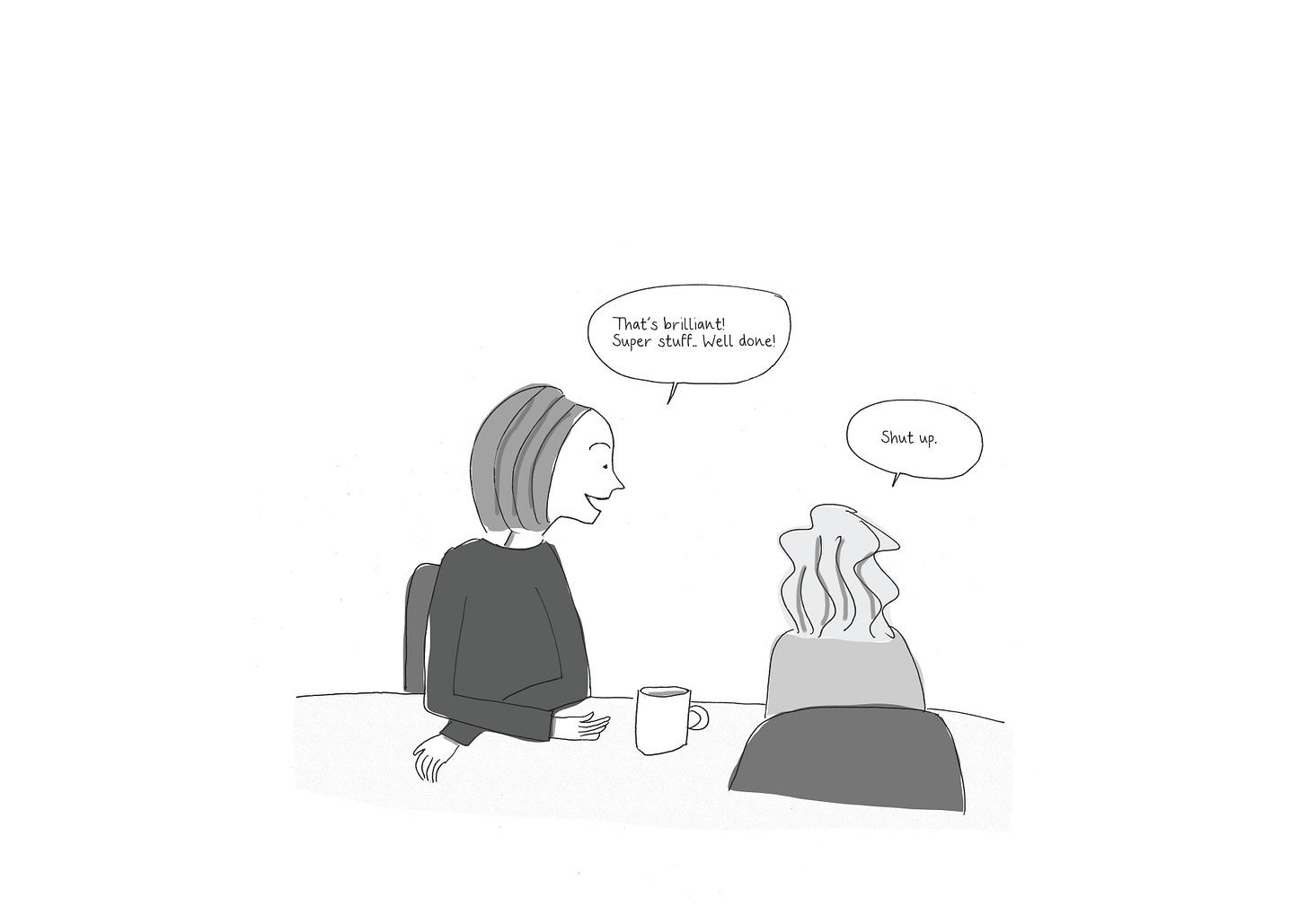Parents are often told to praise their children. ‘Catch them behaving well!’ they’re told. ‘Tell them how proud you are of their good choices!’.
It sounds innocuous – who could argue with praise? Positive, reinforcing, feel-good – surely an all-round nice thing?
So it’s a mystery to parents when children come along whose response to praise is the opposite to what they expected.
‘Well done!’ the parents say and
‘I’m not doing it anymore’ say the children.
The parents then sometimes increase the praise or even add physical rewards, stickers or certificates – and that’s enough to entrench the child in their position. Previously enjoyed activities are abandoned, never to be picked up again.
What’s going on? All the books say that children want to please their parents and that praise encourages them – but they rarely talk about those for whom it doesn’t work. They assume that praise has no downside. But some children are super-sensitive to control – and they have noticed what many of us never see.
Praise can be another way to control children. Just as much as punishments, praise can be used to manipulate. Praise shifts the emphasis from the child doing something for their own purposes, to the child doing something to please adults. It introduces evaluation – why is this picture worth of praise, whilst the last picture wasn’t? Why do they get praised for their piano practice, but not for practicing their skills on Geometry Dash?
For some children, that’s enough to taint the activity. It’s no longer something they can just enjoy, it’s something that adults want them to do well at and that the adults are assessing. And it brings in anxiety – what if their next effort doesn’t get a ‘Good job’? What then? What will that mean about them?
How do parents do something different? Come to my next Art of Low Demand Parenting webinar with Eliza Fricker (Missing the Mark) on Wednesday 6th March and find out. All about Behaviour. Yes it’s recorded.





PDA profile child or adult perceive certificate, sticker chart etc.. as a demand. Do this get that is to their nervous system a demand. And so with demand avoidant behaviour once the brain recognises this. It feels like a loss of autonomy. So the nervous system goes into fight/flight/freeze. Can physically feel like your facing a tiger who's snarling and chasing you. For them a drive for autonomy is key. So they see staff/adults as authority = above them. And this to is a threat to the nervous system. And whilst all this is going on they've left the thinking part of the brain.
They need to feel equal to or above others in order to balance the nervous system and achieve. But dependant on the spectrum wheel, each send child have different levels of struggles. Some with PDA added in and when staff say "Jacob was fine in school." They are judging only the part of the iceberg above the ocean. Below the ocean isn't seen. They see able to do school work and no visual response to lack of school support the masking phase. Below the iceberg flips over as they leave school premises and suddenly the struggles they've endured all day explode. This being anxiety, sensory overwhelm, smells, labels on clothes, lack of support the school require you wear to please the system. And much much more. Because all the staff see is the outer shell wearing a mask while inside the stress bucket is filling at a faster rate than a neurotypical student.
Exactly describing my PDA 9 yo!